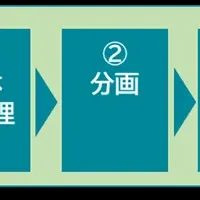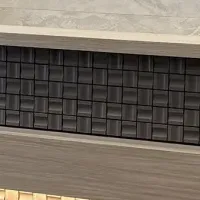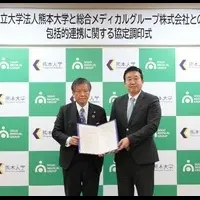
Levita Magnetics Reaches Milestone with 1,000 Surgeries Using MARS System
Celebrating a New Era in Surgery
Levita Magnetics has reached an extraordinary milestone by successfully completing over 1,000 surgeries utilizing its revolutionary MARS® (Magnetic-Assisted Robotic Surgery) System. Last week, Dr. Brian Ruhle from Stanford University School of Medicine performed a gastric bypass using this cutting-edge technology, emphasizing its potential to significantly enhance surgical practices.
The Significance of this Achievement
Dr. Ruhle expressed the importance of this milestone, stating that it reflects the positive impact this innovative method has had on real patients. He noted, "The MARS System enhances laparoscopic surgeries, offering superior visual control and expanding surgical capabilities. It is a game-changer for both straightforward and complex procedures."
The MARS System employs Levita's proprietary Dynamic Magnetic Positioning™ technology, making it the only FDA-cleared surgical platform that utilizes magnets for organ retraction during various laparoscopic procedures. This technology minimizes the need for additional incisions, leading to faster recovery times, reduced pain, and improved cosmetic outcomes for patients.
A Journey of Innovation
The journey to 1,000 surgeries at Stanford is part of a much larger narrative involving the increasing adoption of the MARS System across prominent hospitals in the U.S. and Latin America. With an emphasis on making surgeries less invasive, Levita has witnessed rapid clinical adoption and broadened its use across multiple specialties. This milestone marks a significant chapter in Levita's commitment to improving surgical outcomes globally.
Key Milestones in MARS Deployment
- - World’s First Commercial Use (October 2023): Pioneering surgeons at Cleveland Clinic marked the beginning of commercial MARS procedures right after FDA clearance.
- - International Expansion (December 2023): The MARS System was introduced at Hospital Luis Tisne in Santiago, Chile, paving the way for wider deployment across the country.
- - AR in Surgery (March 2024): A breakthrough occurred when surgeons performed the first augmented reality abdominal surgery using MARS in Chile, hinting at a future where AI-enhanced surgeries may be commonplace.
- - Private Hospital Deployment (April 2024): The system made inroads into private healthcare, with successful gastric procedures demonstrating its versatility.
- - Dual-System Robotic Surgery (November 2024): A remarkable procedure took place when MARS was used in conjunction with the Da Vinci Single Port Robotic System, enhancing precision and paving the way for future surgical advancements.
- - Expanded FDA Indications (June 2025): Recently, the FDA has extended the MARS System's capabilities to include complex abdominal procedures, signifying Levita’s commitment to advancing minimally invasive techniques.
Transforming Surgical Approaches
As it stands, Levita's technology is reshaping the landscape of minimally invasive surgery. With its applications growing across bariatric, colorectal, and other specialized procedures, the MARS System is setting new benchmarks.
Dr. Alberto Rodriguez-Navarro, the founder of Levita, expressed immense pride in achieving this milestone: "We’re just at the beginning of redefining surgical norms. MARS is not just a technological advancement; it represents a fundamental shift towards surgical practices that are less invasive, more efficient, and benefit both surgeons and patients."
Looking Ahead
With the increasing demand for effective surgical solutions that minimize invasiveness, Levita Magnetics is well-positioned for further expansion. Their ongoing efforts aim to introduce magnetic-assisted robotic surgery into more healthcare systems worldwide, ensuring enhanced care delivery and improved patient outcomes for all.
For more media inquiries, contact Tim Gray, Communications Strategist.
About Levita Magnetics
Based in Silicon Valley, Levita Magnetics is pioneering advanced surgical technologies aimed at minimizing invasive procedures while enhancing surgical precision. The MARS and MSS systems offer a groundbreaking approach, allowing for improved surgical control and minimizing recovery trauma for patients.
Topics Health)










【About Using Articles】
You can freely use the title and article content by linking to the page where the article is posted.
※ Images cannot be used.
【About Links】
Links are free to use.